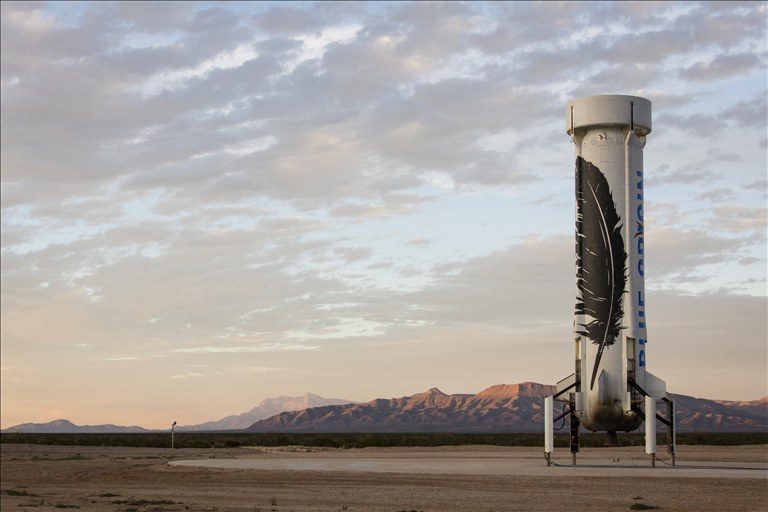SUMMARY
This is AI generated summarization, which may have errors. For context, always refer to the full article.

WASHINGTON DC, USA – Two months after the breakthrough launch and vertical landing of a reusable rocket, the space firm created by Internet entrepreneur Jeff Bezos did it again.
The company, Blue Origin, said on Saturday, January 23, that the same New Shepard booster which blasted off and landed in November had repeated the feat, hitting an altitude of 333,000 feet (101 kilometers) before “gently” returning to Earth.
A video released by Blue Origin showed the launch and landing from the Texas site, with the rocket slowed to three miles per hour (five kilometers per hour) on its descent with the assistance of parachutes.
The breakthroughs by Blue Origin and parallel efforts by rival Internet mogul Elon Musk’s SpaceX open up the potential for cutting costs for space travel and making rockets as reusable as airplanes.
In November, Bezos called the accomplishment a “game changer” which opens the door to lower costs in space travel and his vision of people living and working in space.
Bezos, who founded online giant Amazon and also owns The Washington Post newspaper, said in a statement Saturday that Blue Origin has solved the problem of balancing to keep the rocket in an upright position as it lands.
“I’m a huge fan of rocket-powered vertical landing,” he said in the statement.
“Why? Because to achieve our vision of millions of people living and working in space we will need to build very large rocket boosters. And the vertical landing architecture scales extraordinarily well.
“When you do a vertical landing, you’re solving the classic inverted pendulum problem, and the inverted pendulum problem gets a bit easier as the pendulum gets a bit bigger.”
SpaceX in December managed a similar feat for the first time with its Falcon 9 rocket.
Previous attempts to land the Falcon 9’s first stage on a floating ocean platform had failed — with the rocket either colliding with the autonomous drone ship or tipping over. – Rappler.com
Add a comment
How does this make you feel?
There are no comments yet. Add your comment to start the conversation.